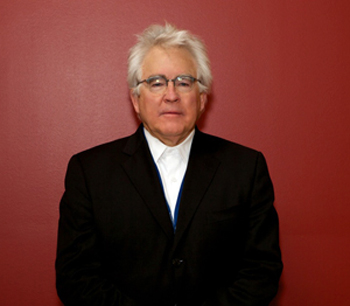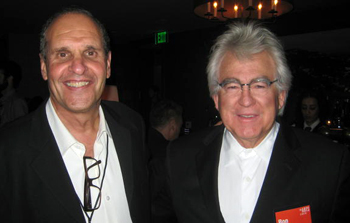Campus News
UCSC alumnus Ron Yerxa up for ‘Best Picture’ Academy Award
“Election,” “Cold Mountain,” “King of the Hill,” “Little Miss Sunshine”…these are just a few of the high-quality films produced by Ron Yerxa since he left UC Santa Cruz with a masters degree in 1976…




Election, Cold Mountain, King of the Hill, Little Miss Sunshine…these are just a few of the high-quality films produced by Ron Yerxa since he left UC Santa Cruz with a masters degree in 1976.
His latest effort, Nebraska, has earned him and his longtime partner Albert Berger a prestigious nomination for “Best Picture” in the 2014 Academy Awards.
As a producer, it’s Yerxa’s job to take the raw material of a manuscript, screenplay, or book, and then build it into a finished film. That basically involves hiring a writer, making the project attractive by attaching actors, and securing the financing.
“You have to get all seven or eight balls to fall in the hole at the same time,” said Yerxa of the process.
“You first have to get the material, then a writer, the director, the actors…and hope none of them fall out of the hole before you’ve got the entire puzzle together.”
Nebraska was shot in 37 days on a $13 million budget in an era where the average studio film runs $60 to $70 million, with blockbusters often costing more than $120 million.
“The script for Nebraska was written by a first-time screenwriter who showed great heart and humor,” said Yerxa. “Our first thought was it would be a low budget film. But we sent it to (director) Alexander Payne because, having made Election with him, we knew he was Nebraska-centric.”
“We thought he might want to godfather it or be an executive producer–but he phoned back that he’d like to direct it, but couldn’t do it right away. So we had to wait for him. We thought it would be a couple of years, but it turned out to be 10 years.”
Yerxa said he was a bit surprised by Nebraska’s success–which includes multiple Academy Award nominations–but not totally shocked because Payne was just coming off his Oscar-nominated film The Descendants, with George Clooney.
“From the first expectations of a small film that would play at Sundance, to a film that took best actor at Cannes and then six Academy nominations, it’s one of those sweet moments for a producer,” said Yerxa.
“For the big studios, if it’s not a tentpole film, it has to have major star casting,” Yerxa added. “So to cast with Bruce Dern, Will Forte and June Squibb was not exactly what the studios had in mind. But Paramount gave us a lot of leeway since we were making an ‘Alexander Payne film’ at a contained budget. Payne likes very authentic actors and to go against the Hollywood grain.”
So does Yerxa.
In the early 1970s, he taught at Upward Bound in Los Angeles, a program designed to support efforts by minority and low-income high school students to get into college. Prior to that, he worked as a freelance journalist after attending Stanford University.
Yerxa said he never anticipated a career in the film industry, and after a couple of years in Los Angeles, was drawn to Santa Cruz, where he studied at UCSC and had a life-enhancing experience.
“Its hard to exaggerate the appeal that UCSC had for me and so many others who wanted to swim in the best waters of the counterculture,” said Yerxa. “Those of us who were around UCSC in the late 60s and 70s have such a bottled-up affection for that time and place. Until recently when the new arts dean David Yager contacted me, I didn’t have any way to express all that. We met and made a connection, and the cork popped off.”
After his graduate days at UCSC, Yerxa watched his friends scatter, mostly into the academic and film worlds. Some became screenwriters and invited him to re-visit LA. After a few years of teaching at an alternative school, he finally got his first Hollywood job.
In 1991, he formed Bona Fide Productions with Albert Berger and is now one of the country’s leading independent film producers.
So what’s the secret to his success?
“Our films are sort of hand-made,” said Yerxa. “We’re only a three-person company. We’re not a volume dealer. We choose the material carefully and have a personal desire and connection with the films we develop–mostly character-oriented social comedies and some dramas.”
He’s also rekindled his personal connection to UC Santa Cruz, joining the Arts Dean’s Leadership Advisory Board, speaking at a recent UCSC Film Symposium, and joining the campus’s 50th anniversary planning committee.
“The film symposium and dinner brought back how Santa Cruz was one of the most uniquely interesting places on earth in the 60s and 70s,” said Yerxa. “There’s been a 30-year gap for me, but a lot of those qualities are still there. And I think the dean has done a tremendous job in increasing the awareness of the university’s film studies program outside the region.”
Previously, I had visited Santa Cruz fairly often to visit (emeritus professor) John and Ann Dizikes and old friends, but now I feel reconnected with the university and there are great reasons to drive up the hill,” he added.
As for the Academy awards, “we’re rooting for Bruce…Dern that is,” said Yerxa.